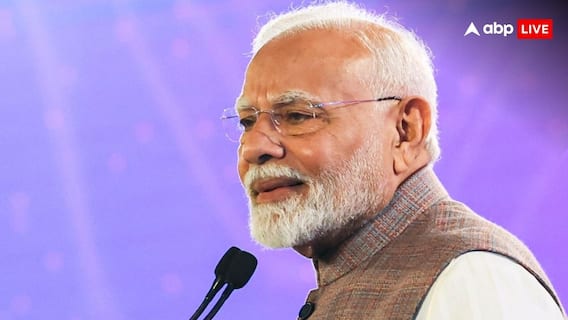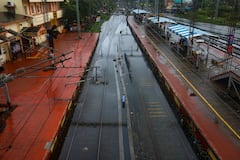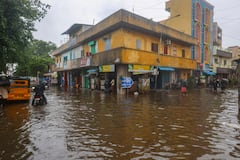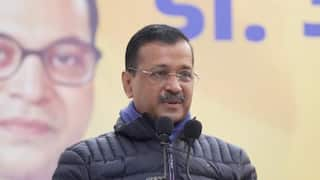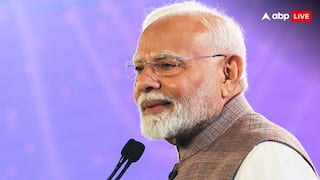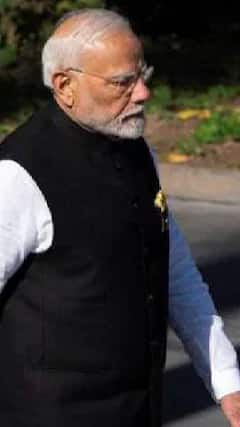'Households Consuming Over 400 Units Can Get Zero Bill': CM Atishi Launches Delhi Solar Portal; Know How To Apply
The Delhi Solar Portal will enable Delhiites become prosumers (power consumers who generate extra solar power) by installing rooftop solar panels with the portal's help.

Delhi Chief Minister Atishi on Wednesday launched the 'Delhi Solar Portal' to make rooftop solar installations accessible and convenient for Delhiites. The initiative is in line with the Delhi Solar Energy Policy, aiming to achieve a cumulative rooftop solar capacity of 750 MW by 2027. The portal can be accessed at solar.delhi.gov.in, and has been set up to enable citizens to transition to solar energy effortlessly.
Launching the ‘Solar Portal’ at the Delhi Secretariat, Chief Minister Atishi emphasised that through this citizens can avail subsidies, get rooftop solar panels installed, and apply for generation-based incentives from the comfort of their homes.
"This portal simplifies the process and empowers residents to take charge of their energy needs," CM Atishi said, adding that the initiative will help achieve atleast 25 percent of the target of 750 MW rooftop solar power generation as part of AAP's solar policy launced in March this year. "Under this policy, an ambitious target has been set to generate 25% of Delhi’s total energy consumption through solar power by 2027."
The portal will enable Delhiites become prosumers (power consumers who generate extra solar power) by installing rooftop solar panels with the portal's help. Even households consuming over 400 units can get zero electricity bill by using the solar portal.
The Solar Portal has a feature of a solar calculator, which will enable users to determine the potential energy generation and savings from rooftop solar installations. The tool has been designed to encourage people in the national capital to opt for the Solar Portal by highlighting its environmental and financial advantages.
CM Atishi reiterated AAP government's commitment to clean and non-polluting energy, saying "The Delhi Government has always been committed to clean and non-polluting energy. As you know, Delhi is the only state in the country that has shut down all thermal power plants within its boundaries to prevent its citizens from suffering due to pollution."
Rooftop solar panel installation will help consumers who have over 400 units of monthly power consumption to enjoy subsidy benefits. "When you install rooftop solar panels, you also become eligible for net metering. Net metering means if you consume 400 units of electricity but generate 300 units from solar power, you will only need to pay for 100 units. The application for net metering can also be submitted directly through the portal, eliminating the need to visit electricity company offices or fill out separate forms. Additionally, applications for subsidies provided by the Delhi government can also be submitted on this portal," Atishi said.
She further said that the portal has a solar calculator, enabling users to input details such as location, roof size, and area to understand the estimate of how much solar energy they can generate by installing the panels at their homes.
The Delhi Solar Policy has financial benefits for users as well. Under the scheme, the consumers who generate electricity more than they consume can earn money from the Delhi government. This will not only help consumers eliminate electricity bills but earn money every month for the surplus energy they generate by installing rooftop solar panels. "Residential consumers will receive Rs 2 per unit as a generation-based incentive, while commercial and industrial units will receive Rs 1 per unit," she said.
What Is Delhi Solar Portal?
Delhi Solar Portal is a comprehensive online platform to facilitate the rooftop solar installations for residents and businesses in the national capital. It is an initiative by the AAP government to achieve a cumulative rooftop solar capacity of 750 MW by 2027 as per the Delhi Solar Energy Policy.
Key Features Of Delhi Solar Portal
Centralized Information Hub: Users can access detailed information on the Delhi Solar Energy Policy on the portal, including benefits of rooftop solar systems, subsidy structures, and related regulations.
Online Applications: The portal will also help users to apply for net metering and access Delhi government's capital subsidy and Generation-Based Incentive (GBI).
Solar Calculator: This interactive tool will allow users to input data like rooftop area, monthly electricity consumption, and desired solar installation capacity. The inputs will then help users get estimates on installation costs, monthly GBI, applicable subsidies, potential savings on electricity bills, and the payback period.
Vendor Directory: The portal has a list of vendors, which will help consumers choose reputable service providers for their solar installations.
Economic Incentives Of Delhi Solar Portal
Generation-Based Incentive (GBI): Consumers will receive financial incentives based on the amount of solar energy generated for five years post-installation.
- Residential consumers up to 3 kW: ₹3 per kWh
- Residential consumers between 3–10 kW: ₹2 per kWh
- Group Housing Societies (GHS) up to 500 kW: ₹2 per kWh
- Commercial and industrial consumers (up to 200 MW): ₹1 per kWh
Capital Subsidy: A one-time subsidy of ₹2,000 per kW is also available for residential customers. It is capped at ₹10,000 per consumer. This subsidy supplements the Central Government's subsidy.
What Is The Application Process Of Delhi Solar Portal?
- Registration: Consumers have to register on the Delhi Solar Portal and submit applications for net metering, GBI, and capital subsidy.
- Processing: The portal streamlines the entire application process and will coordinate with relevant departments for further approvals.
- Installation: After approval, consumers can get the panels installed through empaneled vendors.
- Incentive Disbursement: After the installation, the GBI is adjusted against the consumer's electricity bill. In case there is any excess GBI, it will be credited directly to the consumer's bank account within seven days of the billing cycle. The capital subsidy will be applied to the first electricity bill only after the rooftop solar system commissioning.
Trending News
Top Headlines








